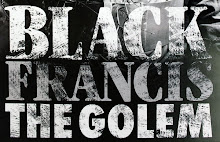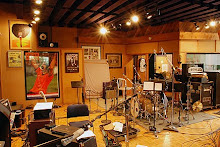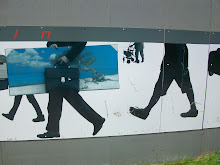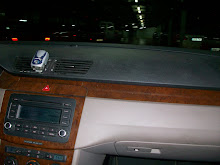Charlie Haden, Influential Jazz Bassist.
By Nate Chinen - July 11, 2014
Charlie Haden, one of the most influential bassists in the history of jazz, died on Friday in Los Angeles. He was 76.
His death was confirmed by Ruth Cameron, his wife of 30 years. For the last several years he had been struggling with the degenerative effects of post-polio syndrome, related to the polio he contracted in his youth.
Mr. Haden had a deep, grounded way with the bass and a warm, softly resonant tone. His approach to harmony was deeply intuitive and sometimes deceivingly simple, always with a firm relationship to a piece’s chordal root. Along with his calm, unbudging rhythmic aplomb, this served him well in settings ranging from the ragged and intrepid to the satiny and refined. His own acclaimed bands, like the Liberation Music Orchestra and Quartet West, handily covered that stylistic expanse.
His jazz career crossed seven decades, with barely a moment of obscurity. He was in his early 20s in 1959, when, as a member of the Ornette Coleman Quartet, he helped set off a seismic disruption in jazz. Mr. Coleman, an alto saxophonist, had been developing a brazen, polytonal approach to improvisation — it would come to be known as free jazz — and in his band, which had no chordal instrument, Mr. Haden served as anchor and pivot. Mr. Coleman’s clarion cry, often entangled with that of the trumpeter Don Cherry, grabbed much of the attention, but Mr. Haden’s playing was just as crucial, for its feeling of unerring rightness in the face of an apparent ruckus.
In addition to Mr. Coleman, with whom he continued to play intermittently in the 1960s and ’70s (and later, in the occasional reunion), Mr. Haden worked with many principal figures of an emerging jazz avant-garde. For a decade starting in 1967, he was a member of a celebrated quartet led by the pianist Keith Jarrett, with Dewey Redman on saxophone and Paul Motian on drums.
The Liberation Music Orchestra, which released its debut album in 1969, was Mr. Haden’s large ensemble, and an expression of his left-leaning political ideals. The band, featuring compositions and arrangements by the pianist Carla Bley, mingled avant-garde wildness with the earnest immediacy of Latin American folk songs. Mr. Haden released each of the band’s four studio albums during Republican administrations; the most recent, in 2005, was “Not in Our Name,” a response to the war in Iraq.
Mr. Haden, who liked to say he was driven by concern for “the struggle of the poor people,” hardly restricted his opinions to the Liberation Music Orchestra. While playing a festival with Mr. Coleman in Lisbon, in 1971, he dedicated his “Song for Ché” to the black liberation movements of Mozambique and Angola, and was promptly jailed.
Charles Edward Haden was born in Shenandoah, Iowa, on Aug. 6, 1937, into a brood of musicians called the Haden Family. Prominent on the Midwestern country circuit in the ’30s and ’40s, the Haden Family had a radio show, on which Mr. Haden made frequent appearances as a yodeling toddler known as Cowboy Charlie.
His own children are also accomplished musicians: His son, Josh Haden, is a singer-songwriter, and his triplet daughters, Petra, Rachel and Tanya Haden, have worked as the Haden Triplets. (In 2008 Mr. Haden released an album, “Rambling Boy,” credited to the Haden Family, featuring his children and a slew of guests in a rootsy style.) Mr. Haden is survived by his children, and by Ms. Cameron; by his brother, Carl Haden Jr., and his sister, Mary Davison; and by three grandchildrem.
For a while after taking up the bass, Mr. Haden played only country music, notably as the house bassist on “Ozark Jubilee,” a network television variety show broadcast from Springfield, Mo. He stopped singing at 15 when he contracted bulbar polio, which affected nerves in his face and throat, threatening his ability even to speak.
One night in Omaha he saw a Jazz at the Philharmonic concert that featured the saxophonist Charlie Parker, a trailblazing hero of bebop. “It was country music all the way for me until I heard Bird in 1951,” he said in an interview in 2008. He moved to Los Angeles, where he connected with the pianists Hampton Hawes and Paul Bley and the saxophonist Art Pepper before falling in with Mr. Coleman.
“People ask me how could I go from country to jazz,” Mr. Haden said. “It’s been a natural convergence for me.” His sensitive ear for pitch, sharply honed throughout a childhood of vocal harmonizing, perfectly suited the needs of Mr. Coleman’s music. “Lonely Woman,” their best-known piece of music together, essentially features a bass melody flowing beneath the plaintive main theme. And in “Ramblin’,” another early Coleman classic, Mr. Haden finishes a bass solo with a quotation of the Southern fiddle tune “Old Joe Clark.”
For all his affinities with the avant-garde, Mr. Haden was a lifelong proponent of melody, and he pursued that interest with often impeccable results. Quartet West, a longtime band with the tenor saxophonist Ernie Watts, the pianist Alan Broadbent and the drummer Larence Marable, applied a burnished touch to an old-Hollywood repertoire; its sound was lush, romantic and unabashedly tinted with nostalgia.
Mr. Haden also recorded albums with strings, including “American Dreams” (2002), and albums of duets with sensitive partners, notably the pianists Hank Jones and Kenny Barron and the guitarist Pat Metheny. The duo album he made with Mr. Metheny, “Beyond the Missouri Sky,” won Mr. Haden his first Grammy Award in 1997. His two others were for albums of reimagined Latin American standards, “Nocturne” and “Land of the Sun.” Both featured the Cuban pianist Gonzalo Rubalcaba.
Mr. Haden, who founded the CalArts Jazz program in 1982 and taught generations of musicians there, was recognized as a National Endowment for the Arts Jazz Master in 2012. He received a lifetime achievement honor at last year’s Grammy Awards, though his health prevented him from attending the ceremony.
His most recent release is “Last Dance,” recorded with Mr. Jarrett in 2007 and released last month. At least one posthumous album has already been scheduled: a concert recording made in 1990 with the guitarist Jim Hall, who died last year.
At the heart of Mr. Haden’s artistic pursuits, even those that drew inspiration from sources far afield, was a conviction in a uniquely American expression. “The beauty of it is that this music is from the earth of the country,” he said. “The old hillbilly music, along with gospel and spirituals and blues and jazz.”
http://www.nytimes.com/
Charlie Haden - New Begining - The Montreal Tapes - Recorded Live on July 1989










































































































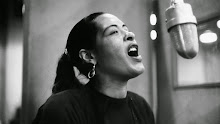



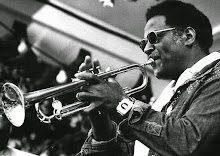





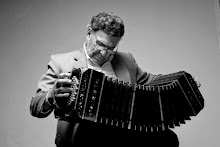


























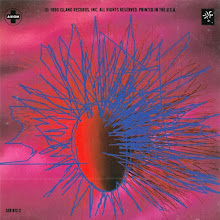






































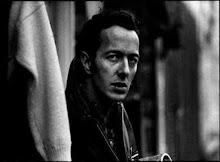


























![Emilio Aragón [Miliki]](https://blogger.googleusercontent.com/img/b/R29vZ2xl/AVvXsEgU984UtiH44tEevrjWKEP26uzJpkSR0NMPCyUzIg16SRop9lUziLazCa4V3Ol9LgmRdnzgHiyLD-8SPVx7J7cZt1G5jmzE1lDfWyzlvXaq7dp2EQ5OLle-bBG3ZcovVu5h00ZzuOwXVCo/s220/Gracias+Miliki%2521.jpg)

























































































































































